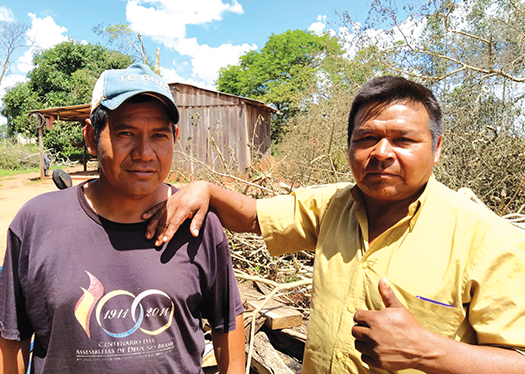
Agua’e primary school teacher Lucio Sosa Benega (right) says that for years, agricultural spraying on nearby cropland has caused his students respiratory problems. He helped make the community’s case to the UN Human Rights Committee. (Photo by Hugo Valiente)
In 1987, the 200 Ava Guaraní people making up Paraguay’s Campo Agua’e indigenous community won formal government recognition of their rights to 900 hectares (2,224 acres) of land in the eastern department of Canindeyú, close to the Brazilian border. Today, over three decades later, the community’s 200 members remain in extreme poverty. And over the past 20 years, they have seen their natural resources and health affected by contamination from agrochemical spraying by large soybean operations that Brazilian farming interests have established on Paraguayan land near the community. The situation constitutes a violation of the community’s “private, family and domestic life,” according to the UN Human Rights Committee, which monitors implementation of the International Covenant on Civil and Political Rights—a key international human rights treaty. The treaty, which was adopted in 1966 and took force in 1976, has been ratified by 167 countries, including Paraguay. In a decision announced... [Log in to read more]